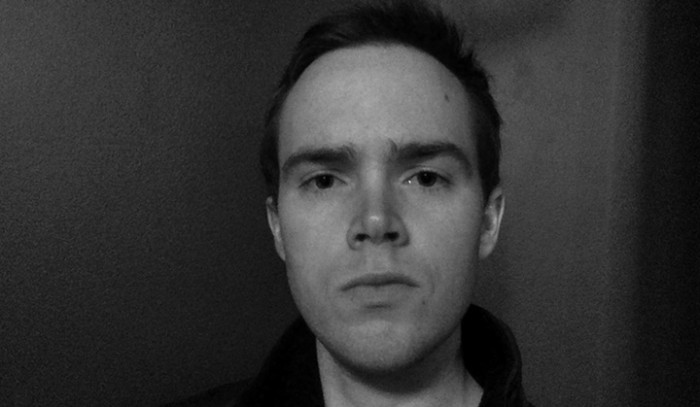Pushing Michaelmas
by Patrick Burr
Bartibus Primshaw walked to the butcher’s each Friday morning at ten o’clock. The silver chimes tittered when he entered. He’d smile at the butcher’s daughter, who helped her father around the shop as a way of paying for her studies at the seminary, wait his turn in line, and once at the front would order three pounds of flank steak — a week’s lunch and dinner. He’d nod to the butcher upon taking his meat, then leave a tip in the polka-dotted jar on the counter marked “for school, for God.”
Bartibus’s philosophy — one he’d found to work well for him, so well that never had a reason arisen to question its verity — was this: A smile is as good as a payday; a wink, as a sunrise — so they say. Always keep moving; you’re nothing if not doing.
No one had taught him to think this way — not with the explicit aim of doing so, at least. His parents had been kind, but they guarded flaws of their own. Rather, he’d acquired the disposition by observing the Now.
All was defined and definable in this Now. Bartibus never spoke its name — not from fear, but to preserve an economy of words so as not to muddle its perfection. All of life was thus labeled, and all humanity and societal interaction were in turn stamped by the Moment in exactly the form in which it appeared. This manifested itself in Bartibus, and he maintained himself within the idea via a strict code of objective honesty. But there’s more to the story of Mister Primshaw than our inane attempts to explain his guarded silence can capture.
It was on one such Friday that Bartibus entered the butcher’s shop to find it empty. The lights were off. He called first the daughter’s name, then the butcher’s. No one answered. He found a note scotch-taped to the glass refrigerator left of the cash register.
“Gone to church,” it read. “If you must take, leave money here. RIP Tom.”
It was normal for the butcher to leave the shop unattended — he was a trusting man, especially when it came to his fellow townsfolk. But who was Tom? Tom Richards, the middle-aged barkeep at the Finn Stern Brewery? Perhaps. Other than that, he could think of no one who went by the name. Deciding the anonymous man to be a close acquaintance of the butcher’s, Bartibus thought to go up to the church to comfort a grieving friend.
A brisk October wind whistled through the dogwoods and oaks lining Main Street. It was the sort of day, Bartibus thought, which hinted at impending winter while clinging fast to the sinews of a bygone summer of heat and requited eternity. The wind chilled him as he ascended Colton Hill, but any discomfort which would have otherwise befallen him was countered in equal measure by the sultry rays of a midmorning sun.
He hummed as he climbed, as was habit — nothing in particular, and everything in particular. Of the hazy half-truths which commingled in his mind and spurted from his mouth as a singular line of notes, he knew nothing — but that it was he who conjured them and spread them through the air about him was incontrovertible. Today the tune whirled from him in a quick staccato, as if impatient to fold itself into a finished product.
Soon the old, wooden church loomed, its white paint chipping, its roof half-devoid of tiles. Those remaining were tinged a sickly moss-green. The door creaked softly as he entered. The butcher and his daughter stood among a group of ten huddled around a short, mahogany casket.
The butcher, who was leaning on his hands at the casket’s foot, looked up when he heard Bartibus’ footsteps. Bartibus smiled and nodded to him.
“Hey there, Bart,” the butcher muttered, turning back to the coffin and wiping his eyes with the cuff of his beige wool sport coat. Bartibus joined the knot of mourners, sliding in next to the butcher and putting an arm around his shoulder. He peered into the coffin. A black-haired boy no older than seven or eight lay supine. His skin shone a pallid gray. His eyes were open, and his blank stare bore a hard hole in the patchwork roof. The butcher shuddered and shook off Bartibus’ hand.
“Don’t need comforting,” he mumbled through repressed sniffs. “Please.”
“Who was he?” asked Bartibus.
“My nephew. He was in town visiting with his mother. My sister. We were going to pick pumpkins this afternoon.” His voice was airy, a departure from his trademark growl. He paused to wipe a streak of clear snot from his upper lip before continuing. “Tuesday night, he slipped on some loose hay in the goat paddock. The animals got startled, and….” He trembled harder. Bartibus resisted the urge to hug him. “I saw it happen,” the butcher said. “I can’t believe he’s gone. I saw it happen.” He buried his face in one sausage-fingered hand and shuffled two steps to his right to hug his daughter, who wept silently.
“But he’s in God’s hands, now, brother,” said a stout, bearded man standing at the boy’s midriff. “In Him, purpose is bestowed upon both the living and the dead. He’s in a better place.” The butcher raised his head and nodded in assent.
Bartibus observed the other men and women gathered around the boy. A beefy woman stood at the coffin’s head. A scrawny man with black hair the same shade as the boy’s reached his arm as far as he could around her broad shoulders. Bartibus turned to the body. He ran his eyes over its length, from shoes to head. The child looked peaceful, he thought, in his Sunday finery, his face jaded by neither fear nor excitement, neither contempt nor Earthly love.
Bartibus found himself shaking with a kinetic, frenetic energy, as if he were a bolt of lightning which had been struck by a second, equally powerful bolt.
“But doesn’t death open new doors, doors we cannot even dream of for their majesty?!” Bartibus exclaimed, turning towards the butcher. “You said you can’t believe he’s gone — but where has he gone to? Do you not entertain thoughts of him now in the same way you would if he were alive?”
The butcher frowned at him. Bartibus, breathing as if he had just run in the town’s annual Turkey Trot, continued, his voice rising and trembling.
“The most you can know of anyone is the idea you form of them in your head. Are those ideas not still etched on the tablets of your minds? All of you?”
“But he’ll never walk among us again,” cried the broad-shouldered woman. “My son … he was my son! And now there will be no new memories, no fresh carvings on his totem for us to celebrate.”
“And this is a bad thing?” Bartibus asked. “Annul your marriage of convenience to bodily biases! Break your minds from the habit of acknowledging the familiar dogma as unimpeachable! Then you shall come to see universal Truth. Then you shall recognize eternity.”
All ten of the mourners glared at him in haughty curiosity. Then the butcher huffed, “So you’re saying it’s better he’s dead? At seven years old? Here I thought you were a man, Bartibus. An honest man. You’re no better than, than….” He allowed the thought to peter out, instead clenching his fists and biting his tongue.
“Honest I am,” replied Bartibus. “All I’m saying is, what is a body but uncertainty incarnate? That the boy was spared of ups and downs and left the world behind him before it could engrave upon him the broken half-ideas of pain and the twisted norm of feigned empathy is beautiful. Do you not agree?”
“Feigned?” sobbed the butcher’s daughter. “So we don’t care for our blood, now?”
Bartibus signed. “You miss my point. In willing yourself to befriend sorrow, you have clouded your balance.”
She glared at him. He returned her gaze with a steady, unblinking tenacity, smiling softly before again rolling into speech.
“Look,” he continued, “look how peaceful he is, how unaffected. How ideal. Death, my friends, is the ultimate beauty, far more than music or laughter or sensuality or supposed kinship. In its depth it is paramount, incontrovertible, true.”
Bartibus felt ten sets of bloodshot eyes training as rifle scopes to his forehead.
“You’d best leave,” said the butcher, who had stopped sniffling and now massaged his snot-streaked knuckles. Bartibus almost laughed at the contrast of their sorrowful disposition and his unwavering knowledge of life and the irreducibility the ox-yoke holding it and death in tandem.
“Can you not see?!” he cried. “Do you not know? Death is neither good nor bad, it simply is, and because of this it is All Good!”
“You’re talking circles,” said the butcher, turning towards him and rolling up his sleeves. “Circles and circles and bullshit. I said leave, you hear?” The broad woman sobbed harder.
“Just go,” she choked. “Let him leave, please. He wouldn’t want us to fight over him. Not here. Not like this.”
One final glance at the boy’s body forced the passion of realization from Bartibus’ chest. He skipped from the church, laughing in naive bliss.
He flung the doors open. They creaked on their rusted hinges. The breeze met his face before the sun’s warmth hit him. For a moment, the grin on his face wavered. Then, balance was restored. With a click of his heels against the rotting wood, he hopped down the steps, taking two at a time, and bounced onto the yellow grass of the churchyard.
What would be best now, he thought, would be a walk. A walk, followed by a fine steak. The butcher’s was unlocked. He’d take the usual, and make sure to leave a 20 in his daughter’s tip jar. For a person her age, there was no substitute for education.
BIO
 Patrick Burr studied philosophy at Vanderbilt University and University College London. This is his first published piece of fiction.
Patrick Burr studied philosophy at Vanderbilt University and University College London. This is his first published piece of fiction.














